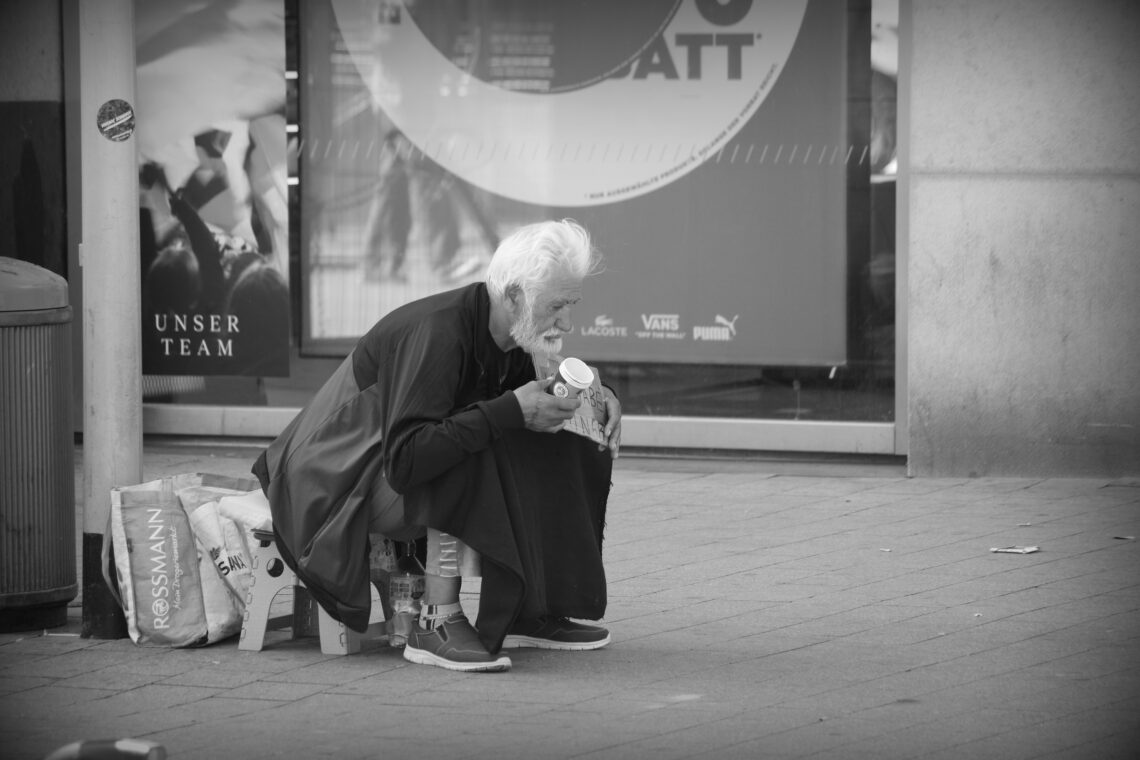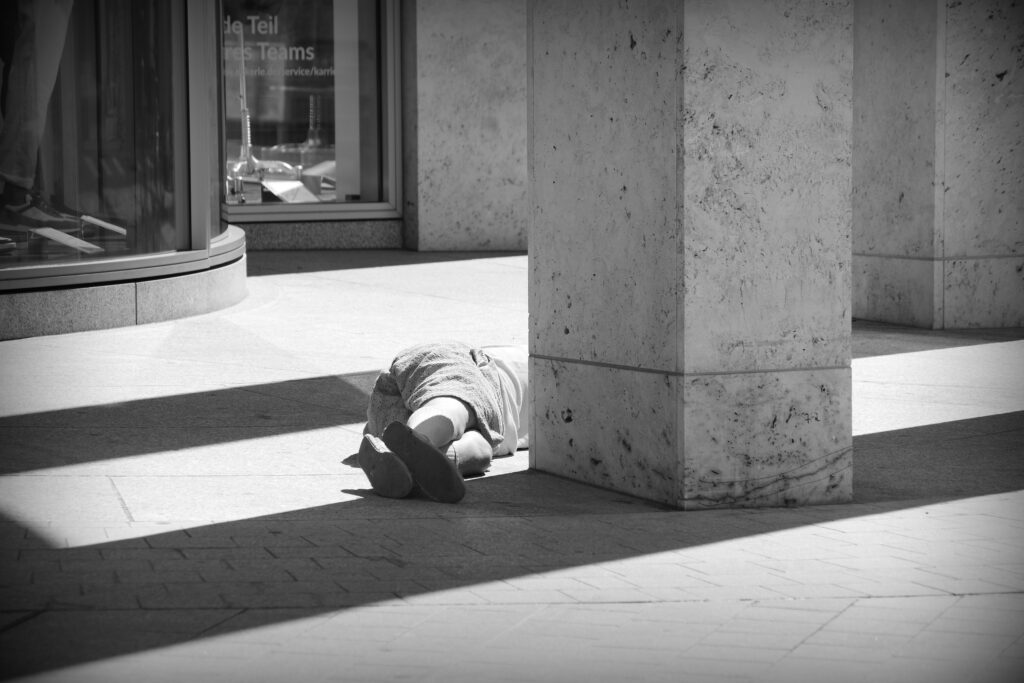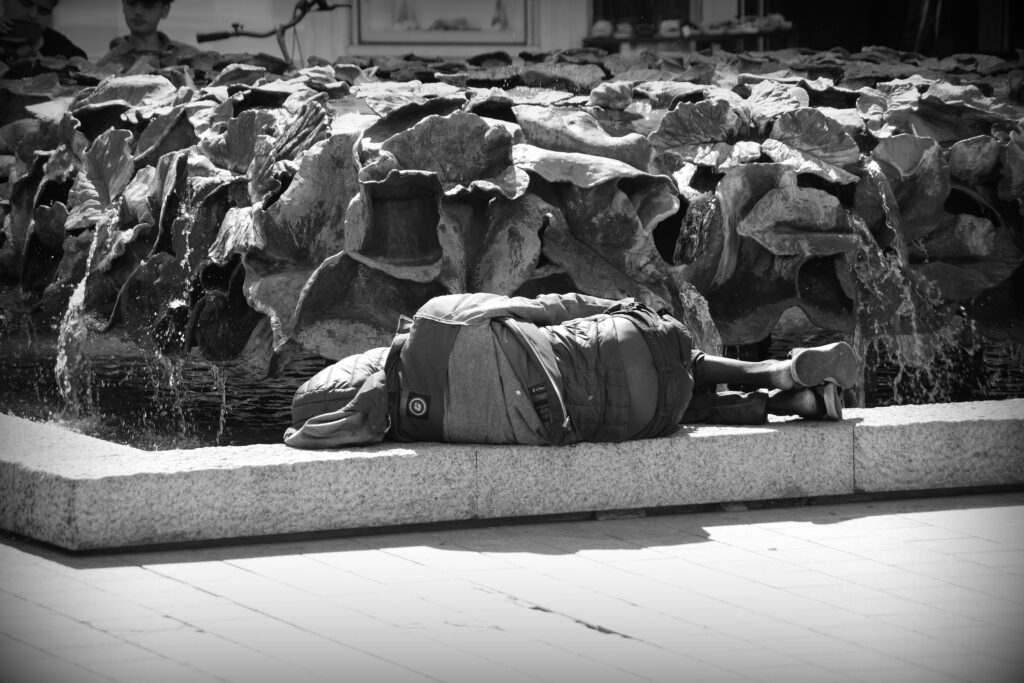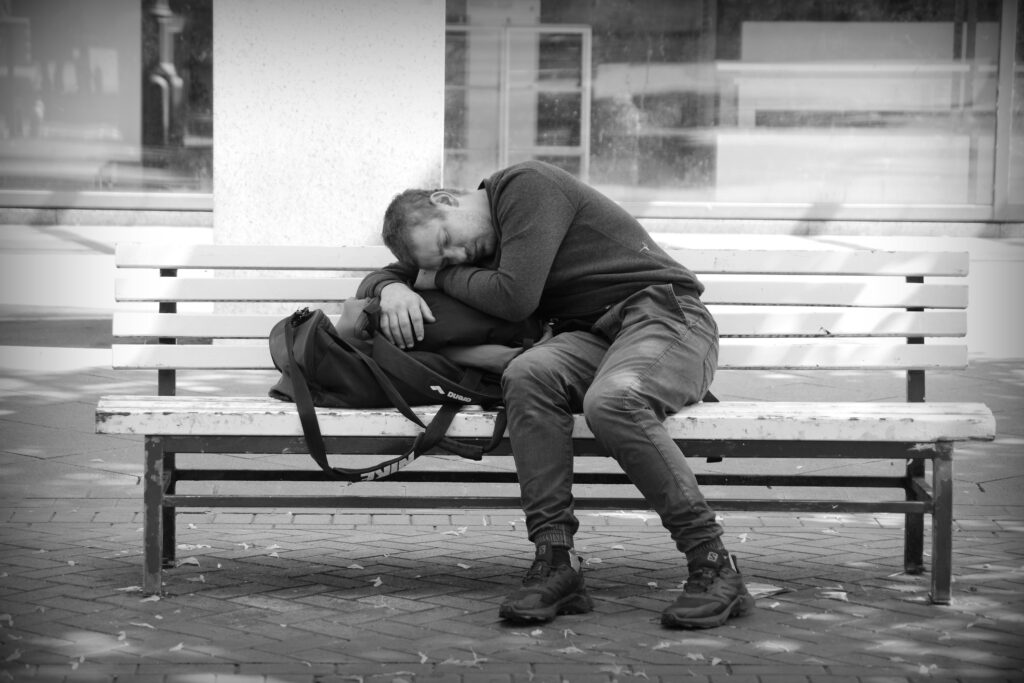
Hannover: First Impressions
It is no secret that the very first impression a person receives, whether they realise it or not, is the one which will influence them for a while to come. It could be a person, it could be a product or, in this case, a city. That first view settles how the mood is going to be for the rest of the day, and it is very hard to shift, to sway, to dispose of. That first impression will always be there, even if we believe we have learned something new, something better about the city we’ve come to visit, and are taking these later impressions away with us. Firstly, with this following photograph, I must clear one thing up: we are visiting Hannover, Germany, and not one of the sixty cities spread across the United States called Hanover. This is not the result of a mass shooting, carefully posed so that the injured side cannot be seen, it is a man sleeping in the middle of the main shopping area on a Tuesday mid-morning. And he is not alone.

Every single city has poverty, it is hard to avoid, difficult to oversee, easy to ignore – after all, if politicians can ignore poverty when it is in their hands to create the financial incentives and support the social safety nets which would prevent poverty, homelessness and increasing mental health issues, ordinary people might consider themselves justified in doing so too. And it is not about banning begging from certain areas of the city, or pushing people away from the centre and into self-formed ghettos, red-light districts and No Go areas. Nor is it about adapting benches so that the homeless cannot sleep across them, or putting spikes across low-lying window ledges. It is about actively reacting to the problems and physically doing something to alleviate poverty where there is clearly a need.

This is the first impression when coming out of the main railway station in Hannover, taking the exit adorned with a marvellous statue of the former King of Hannover, Ernst-August – a British Prince from the House of Hannover who became King of the province in 1837 – and walking across the station square and into the pedestrian precinct. You are immediately aware of several people sitting and squatting, walking or kneeling just to one side of where you wish to go. Some are clearly foreign, some appear to be punks or anarchists (in the modern sense), others are in wheelchairs, electric or hand-driven. They share the same looks, hold out the same plastic and paper cups for your small change, challenge you for fifty cents, sometimes in a friendly manner, often not. You continue on walking into the main area, away from the lower level stairs, and decide to turn right into the long, broad avenue where, facing the centre but wide apart from one another, there are benches between tall trees. In Hamburg and Berlin we saw these areas filled with seating, with small restaurants, with coffee shops, life, activity, with a social life to be envied by smaller cities and towns – even on a Monday morning – here there is none of that. Here we walk on further amid the grey of concrete to either side of us, grey underfoot, trees in the centre but nothing else green or inviting, and are affronted by a smell.

On the right, under the arches of a former department store, behind the lone wagon selling Brezels, there is a small tent. It is occupied by three people, one of whom is sleeping outside on the bare pavement. The entire surrounding area is a mess of discarded, rotting takeaway food containers, clothing, rubbish. On one of the columns there is evidence of at least one person’s ablutions: a thick, dark stain one metre high, where someone has clearly dropped their trousers, bent over and, explosively, relieved themselves of semi-solids. The fecal mess is not fresh, it is clearly several days old and, at the base, surrounded and covering more rotting food in takeaway containers. With a gentle walking pace, we are less than ten minutes away from the main railway station in the central shopping area for this metropolis.
Hannover is a major city in northern Germany, one which many people are proud of, which they call their home. As with every other city worldwide, it is controlled by a Town Hall which decides where money should be spent, who should be supported, who damned and left outside. Here it is clear who has been rejected, but it is also clear that there is no interest in making this vital part of the city a place worth visiting, a place to be seen, to enjoy. It is bare, lacks all that which makes for a good social atmosphere. Perhaps the old part of town is considered more important, worthy of investment, but this is also an area, the main commercial streets of the city, which brings in revenue, which supports life, and it is a dead area. Imagine what it could look like if the Town Hall, if those responsible, converted these broad streets into havens of social interaction with small bars and restaurants, with music and a nightlife. We see, though, that they do not even care for those vulnerable people among us. Whole countries are capable of caring for their most vulnerable, of creating a safety net to support them, bring them back into the folds of society. Hannover has the same opportunities, the same possibilities, but clearly lacks the will, and this is the result. These are still our first impressions, and first impressions count.

